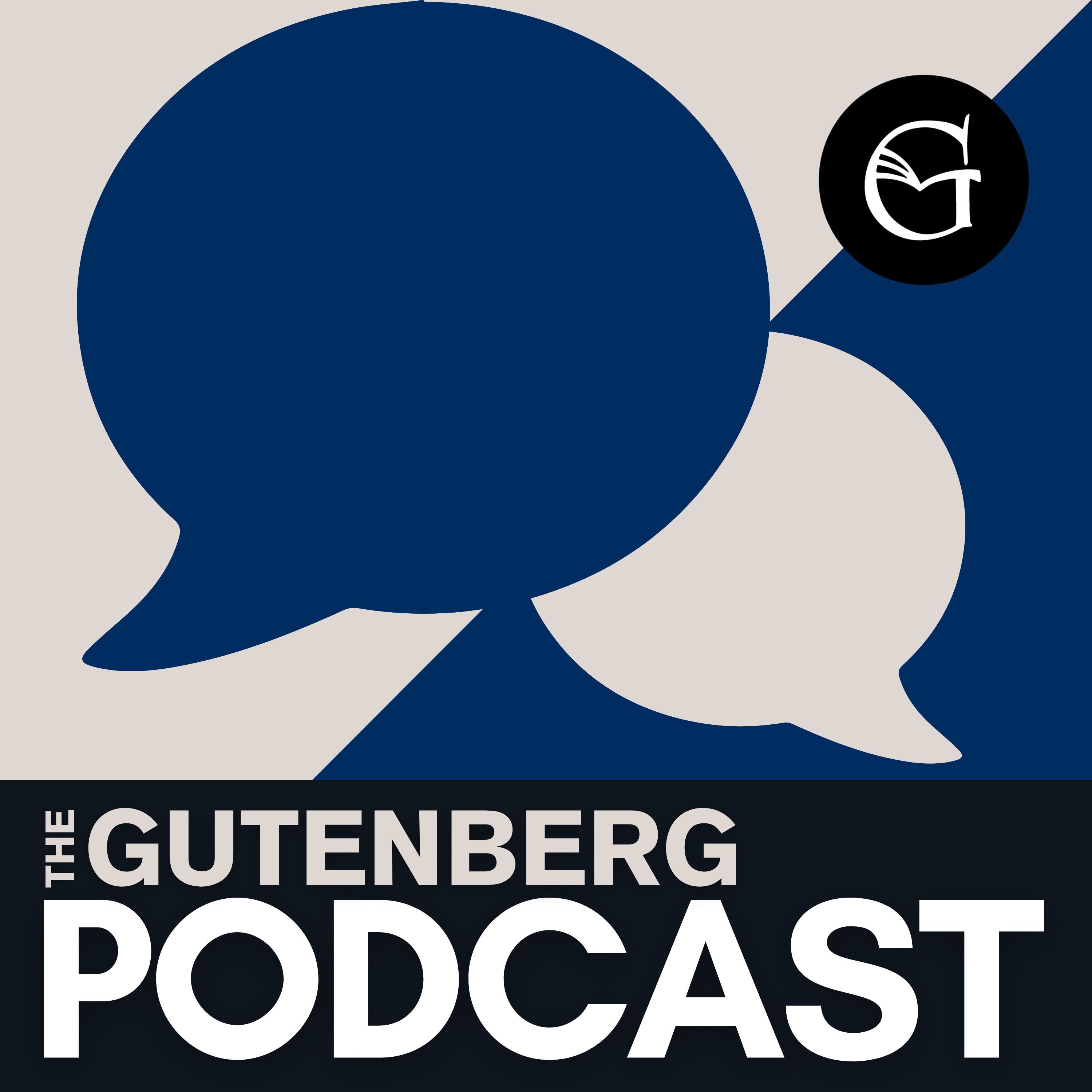- WWI Disenchants the West
Charley Dewberry explains how World War I ended a particularly optimistic view of the Enlightenment, and discusses the sobering reality of man's rebellion against God.
1h 8m - Apr 27, 2024 - The Long 19th Century
Charley Dewberry discusses the long 19th Century--from the end of Napoleon to the end of World War I--and the changes and costs of modernism.
1h 3m - Apr 13, 2024 - Auguste Comte and the Positivist Future
Chris Swanson sits down to discuss Auguste Comte, Positivism, and the optimistic political thought of the 19th century.
56m - Mar 29, 2024 - An Introduction to Soren Kierkegaard
Nancy Scott makes her debut on the podcast, discussing Soren Kierkegaard's authorship, elucidation of Jesus, and opposition to the comforts of Christendom.
1h 5m - Mar 15, 2024 - The French Revolution and Napoleonic Era
Chris Swanson lays out the consequences of the French Revolution, the rise and fall of Napoleon, and the death of Feudalism.
59m - Feb 10, 2024 - Rousseau's SOCIAL CONTRACT
Brian Julian joins the podcast to talk about Rousseau's Social Contract, the "General Will", and why sometimes the questions authors are asking are more helpful than their answers.
1h 2m - Jan 26, 2024 - Road to the Revolutions
Eliot Grasso stops by to broadly survey the history from the Middle Ages to the French Revolution, all while discussing how institutional failure leads to people looking for alternatives.
1h 3m - Jan 13, 2024 - Kant’s Epistemological Contribution
Brian Julian discusses Kant's major contribution to epistemology, where that has lead to in contemporary philosophy, and how we should think about Kant's insights as Christians.
1h 5m - Dec 30, 2023 - Reading Reid, Reading Reality
Chris Swanson returns to discuss Thomas Reid, Reid's critique of the "Ideal System", and how Common Sense relates to philosophy.
56m - Dec 15, 2023 - Hume and the Limits of Understanding
Naomi Rinehold offers an unconventional way to think about David Hume's Inquiry Concerning Human Understanding, along with how to think about the difference between an author's meaning and an author's significance.
59m - Dec 1, 2023 - Locke and Berkeley
Charley Dewberry discusses the projects of Locke and Berkeley in preparation for upcoming episodes about David Hume and Thomas Reid.
57m - Nov 17, 2023 - Descartes Sets the Stage
Chris Swanson lays out Descartes's project, what Descartes was responding to, and how Descartes has influenced Western Civilization.
1h 1m - Nov 3, 2023 - Francis Bacon's NOVUM ORGANUM
Eliot Grasso sits down to talk about Francis Bacon and his most famous work, Novum Organum, and whether Bacon should be remembered as either a villain or a good scientist.
1h 6m - Oct 20, 2023 - The Science Curriculum
Charley Dewberry lays out why the Science Curriculum--focused on the Copernican Revolution--is central to the Gutenberg project.
57m - Oct 6, 2023 - Boccaccio's Decameron
Naomi Rinehold returns to discuss what Boccaccio's Decameron contributed to the Renaissance and the value of such comedic works during times of crisis.
1h 6m - Jun 23, 2023 - Genghis Khan
Charley Dewberry explains how Genghis Khan and the Mongols formed the first economic--instead of political--empire, and how this has affected Western Civilization.
1h 0m - Jun 9, 2023 - Anselm and Proving God's Existence
Brian Julian walks us through Anselm's ontological proof of God's existence, some critiques of that proof, and whether proof is even necessary for faith.
52m - May 12, 2023 - A Millennium of Medieval Philosophy
Eliot Grasso helps digest some key features of Western Medieval Civilization, and its need to harmonize church infrastructure, Greek philosophy, and the teaching of the Bible.
57m - Apr 28, 2023 - From Republic to Empire
Chris Swanson discusses Rome's transition from Republic to Empire, what factors contributed to that transition, and how that might be important for understanding our own place in history.
51m - Apr 7, 2023 - Polybius and the Cycles of Simple Government
Eliot Grasso returns to talk about Polybius, a Greek historian who wrote about why the Roman republic was politically stable despite the tendency of governments to disintegrate.
34m - Mar 24, 2023
